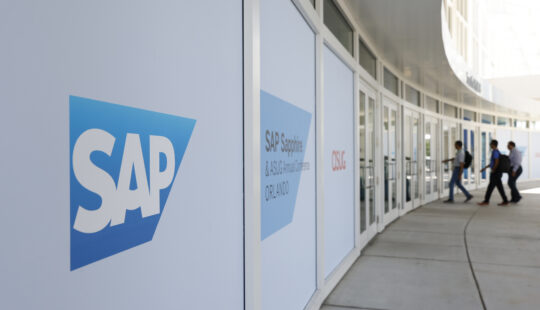It’s been more than one year now since COVID-19 has struck with its full impact. All sections of our society – including businesses and employers – must play a role if we are to stop the spread of this disease. More than ever, it’s on companies to protect the health of their employees while safeguarding business.
Fortunately, at SAP, remote operations across all functions have been a reality for many years, and our automated processes and technologies allowed us to move all of SAP as close to a virtual organization as it can get. But keeping the business running with the help of resilient processes is only one part of the equation; it’s just as important to support our employees’ personal resilience.
We all know that work probably will never be the same, yet I still haven’t gotten used to a lot of things in this “new normal.” I miss meeting my whole family, being around friends and colleagues, eating out, or exchanging ideas face-to-face. And while the intensity of how this affects our daily lives may vary, it is safe to say that mental health issues are a threat to all of us.
Turning desks and kitchen tables into workplaces not just challenged our business continuity, but also impacted people’s private spaces. Suddenly, there was no clear separation of work and home anymore. Many found themselves teleworking full time for the first time, isolated from co-workers, friends, and family. Daily living routines are disrupted, and many are juggling several added pressures but may not feel they have the time, space, or energy to devote to self-care.
The numbers are revealing: The U.S. Centers for Disease Control and Prevention (CDC) states that in the first half of 2019, 11% of U.S. adults surveyed reported symptoms of anxiety or depression. Throughout the crisis, that number had almost quadrupled to 42% in December 2020.
Well-being and mental health have always been important to us at SAP, but the current times further emphasize the need to make physical and emotional wellness a top priority. We have learned a lot, but I would like to emphasize three aspects in particular:
First, Prevent
A healthy workplace culture is the basis for a successful business. It’s critical to create a work environment that is genuinely supportive of mental health. The pandemic has not only forced mental health problems, but also made them more visible. The challenge is to identify issues before they even occur and detect potential symptoms early.
Second, Listen
To do so, it’s essential to proactively foster dialogue and awareness around the topic, fight any form of stigmatization, and allow opportunities to reflect, pause, and recharge. At SAP, we regularly assess and report our Business Health Culture Index that captures the degree to which our workplace culture supports people’s well-being, work-life balance, and organizational health.
Third, Act
Create initiatives and programs and provide resources as well as a strong network of support. At SAP, we are driving a mental health initiative, including the SAP Global Mindfulness Practice program as well as a strong community of health ambassadors around the globe. Until today, more than 11,400 colleagues are trained in mindfulness courses. Our health ambassadors engage with more than 35 locations worldwide, share local practices, and work toward a consistent standard in all SAP locations.
If the pandemic has taught us one thing, it’s that nothing is more important than our health — both physically and mentally. Protecting our highest good by practicing mindfulness and being mindful with others is key. Just because we cannot be physically close shouldn’t mean we can’t be there for each other.
Healthy people are more resilient and are therefore fundamental for a resilient business. What it takes as a company to embrace resiliency beyond people is covered by my colleague Thomas Saueressig in The Co-Existence of Challenge and Opportunity for Businesses.
Christian Klein is CEO of SAP SE.
This story was also published on LinkedIn.
This article first appeared on the SAP Global News Center.



